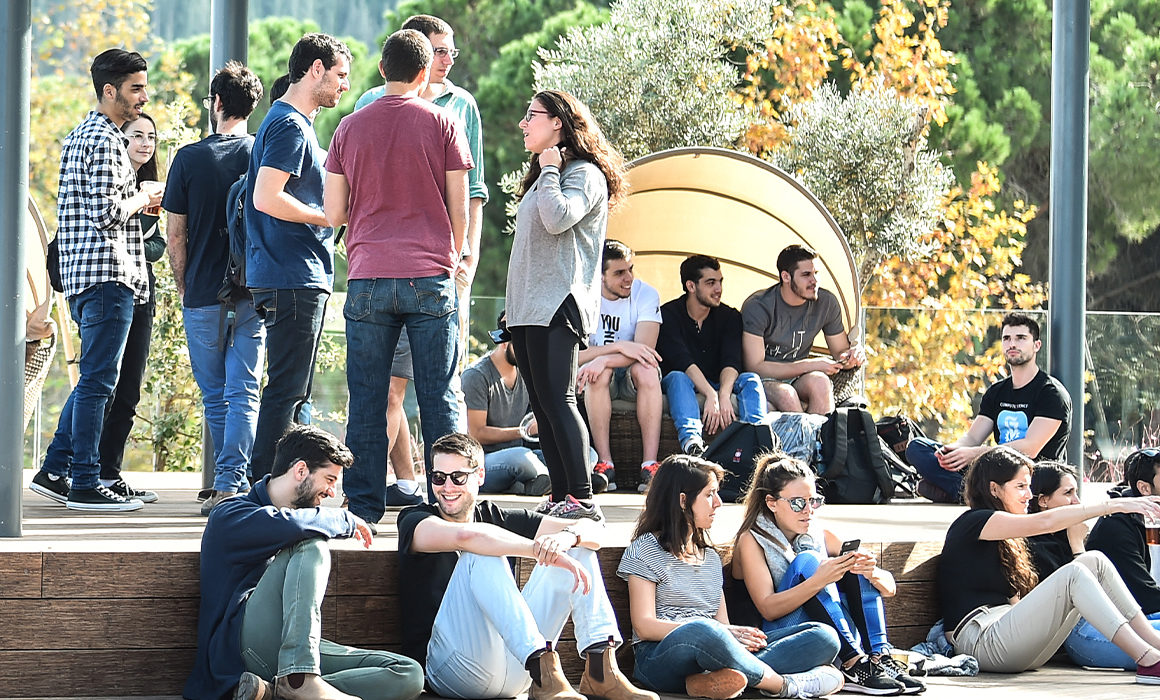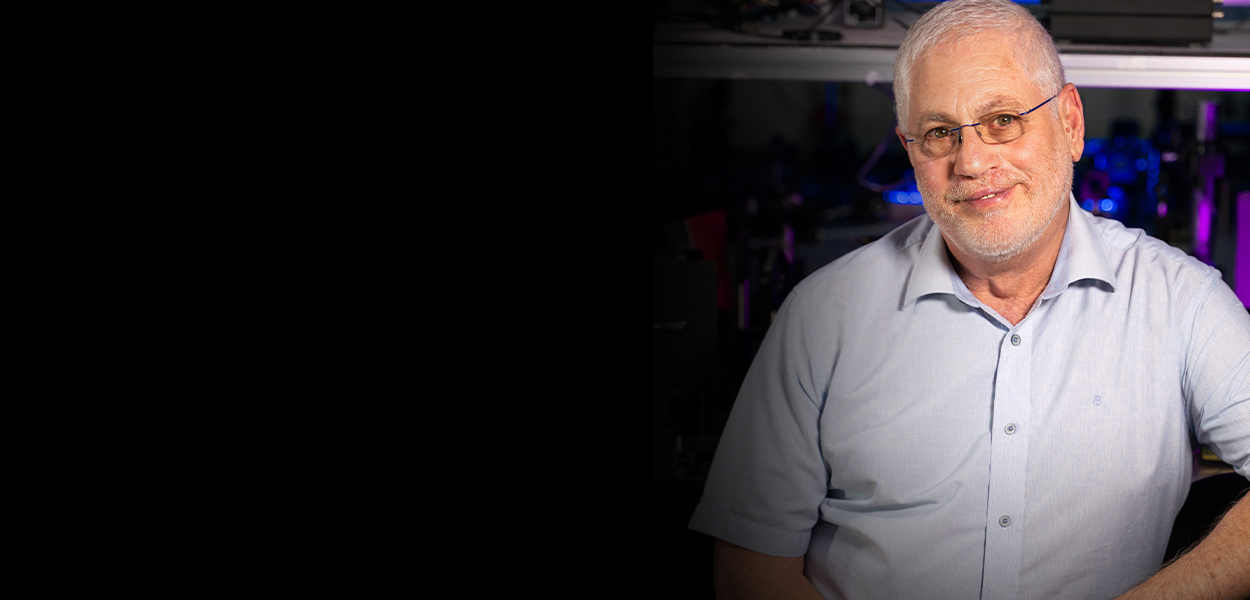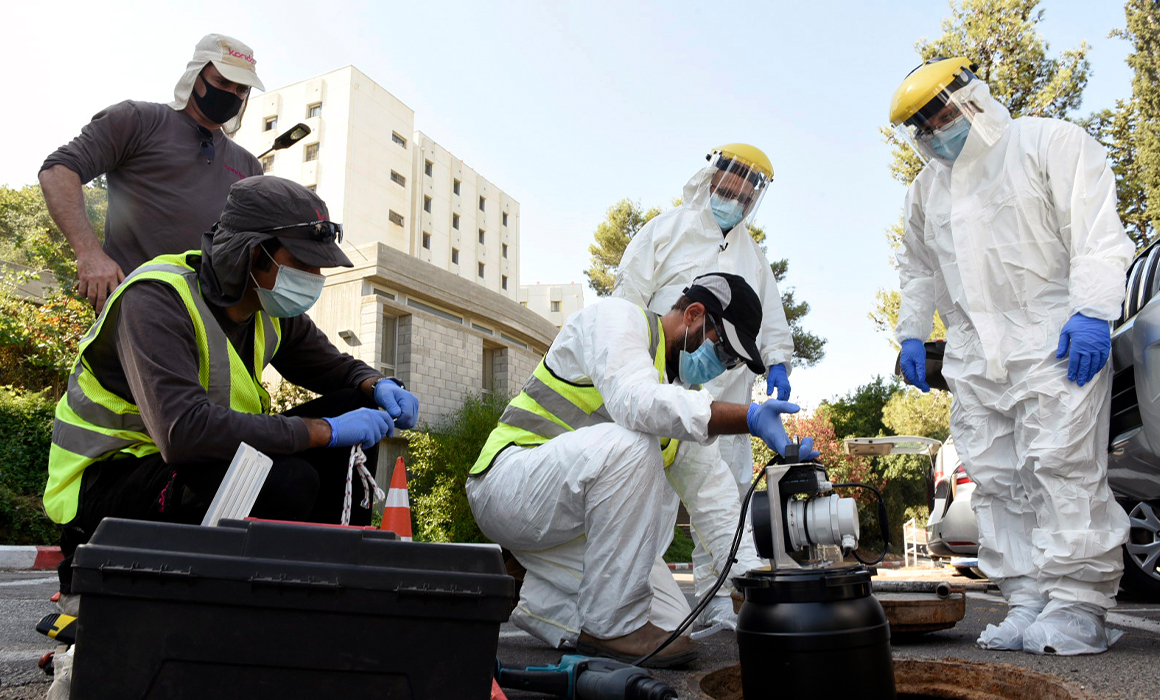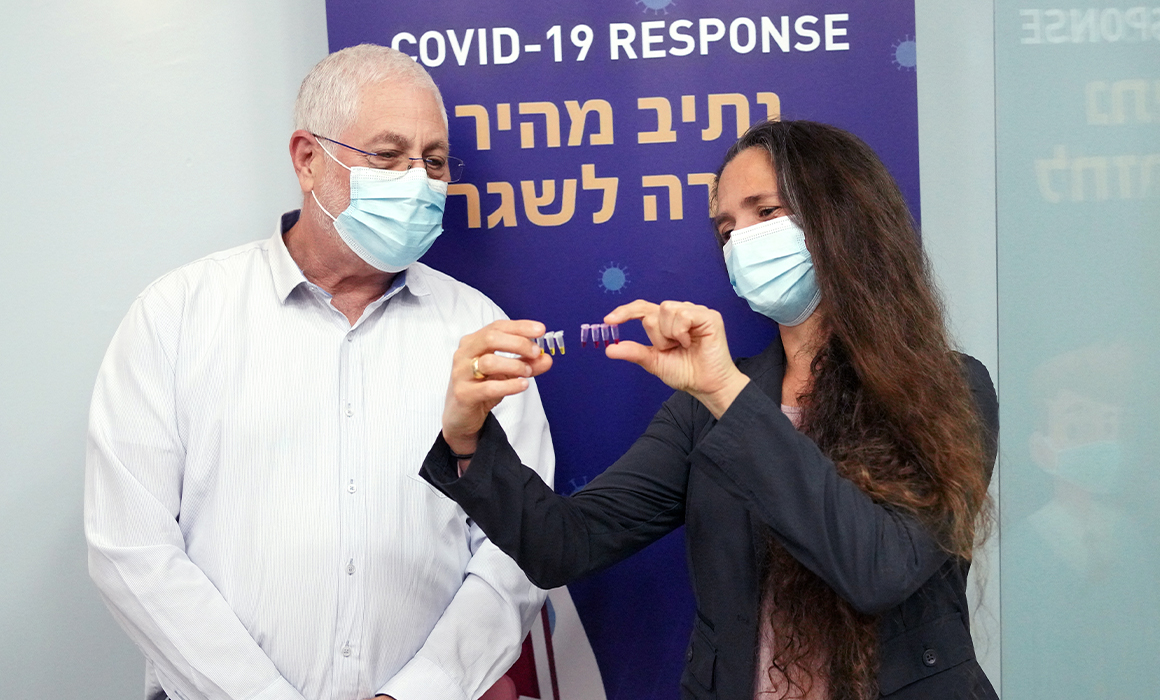When Professor Uri Sivan began his presidency in October 2019, the world was a very different place. While he was prepared to lead the Technion through many challenges, he could not have predicted weathering a global pandemic would be one of them.
Yet more than a year into the pandemic, the Technion is flourishing. New collaborations with hospitals and other research institutions have been established, yielding valuable new insights in artificial intelligence (AI), health care, and sustainability. The Technion is moving full steam ahead on ambitious campus expansion plans that will keep the Technion competitive with the top universities in the world. Students came back to campus this spring to finish the 2020–21 academic year in person. And the Technion had a record year in faculty recruitment, bringing on 36 new professors, which is 50% more than most years.
“During the pandemic, we learned how strong and cohesive the Technion family is in times of crisis,” said President Sivan. “We established emergency funds together with Technion Societies around the world, and the response was overwhelming. The ingenuity and improvisation shown by our researchers was remarkable.”
Some of this success is no doubt due to classic Israeli grit — Israelis are no strangers to staring down challenges. But much of this is thanks to the Technion spirit of relentless innovation and agility — qualities President Sivan had in mind when formulating a strategic vision for the Technion’s future.
To tackle the challenges of the 21st century, the Technion must entirely reimagine research, education, and industry. These areas form the pillars of President Sivan’s vision for the Technion’s continued prosperity.
Boundary-Breaking Research
The Technion has long eschewed the typical silos of academia, encouraging faculty and students to build research partnerships outside their areas of expertise. This approach has brought together the basic sciences and engineering to develop medical devices and countless other technological breakthroughs, helping Israel earn the moniker “Start-up Nation.” “The Technion vision has prepared, shaped, and empowered the high-tech nation, which is the Israel of today,” said President Sivan.
Notwithstanding the hardships brought on by COVID-19, the crisis has remarkably accelerated opportunities for commercialization. This year, the Technion launched a record 15 new companies. To catalyze even more breakthroughs, the Technion is establishing a network of multidisciplinary research institutes focused on the grand challenges of the new century: human health, energy, sustainability, and advanced manufacturing. These centers will cross disciplines and approaches to bring out the best in the Technion and its people.
“We have to start embedding leadership skills in a more general arena, on nontraditional studies like entrepreneurship, ethics, environmental awareness… We believe these are essential for the technological leaders of tomorrow.”
| Prof. Uri Sivan
An illustration representing the Technion Strategic Vision
Education to Equip the Next Generation
The world is changing. “Just a few years ago, university professors were the sole source of information and authority,” President Sivan said. “This is not the case now. People have easy access to information.”
To prepare the next generation of scientists, entrepreneurs, and innovators, our education methods must match the needs of the 21st century — which is exactly what the Technion is doing.
“We have to start embedding leadership skills in a more general arena, on nontraditional studies like entrepreneurship, ethics, environmental awareness — skills that are different from conventional engineering,” President Sivan said. “We believe these are essential for the technological leaders of tomorrow.”
By giving students a broad perspective in addition to a world-class science and engineering education, the Technion is setting graduates up to better understand the ethical, environmental, and societal ramifications of their professional endeavors.
Revolutionary New Partnerships Between Industry and Academia
Increasingly, major corporations are building their own research teams, competing with universities for the best and brightest minds.
Where some see a formidable barrier, President Sivan sees opportunity. “We need to reach a new understanding with those companies,” he stated. “They need to understand that their long-term interest is in preserving academic interest and protecting curiosity-driven research. We need to streamline the technology transfer from the university to tech and
startup companies.”
By bringing industry deeper into campus, the Technion immediately benefits from industry researchers’ deep bench of knowledge and resources in the lab. This gives the Technion firsthand access to technology and information from some of the world’s most cutting-edge companies. Technion students also immensely benefit from the opportunity to learn from these experts as teachers and mentors, further enriching their Technion education.
Prof. Eran Friedler (top center) with members of his lab testing wastewater on campus during the coronavirus pandemic
Getting Back to Campus Safely
As President Sivan was envisioning this strategic direction for the Technion, he could not have imagined campus would grind to a halt as the world dealt with a bruising global pandemic. The Technion adjusted quickly to remote learning, but students and faculty are eager to get back to “normal” life in classrooms and labs across campus.
As part of the Technion’s “Open and Safe Campus” initiative, the Technion is using technology developed in part by Associate Professor Eran Friedler to monitor wastewater on campus for signs of COVID-19. And they are testing students, faculty, and visitors alike with NaorCov19, a rapid test developed by Assistant Professor Naama Geva-Zatorsky.
“It is extremely important to bring students, faculty members, and staff back to campus in order to return to a healthy and safe routine of teaching and researching on campus alongside the virus,” said President Sivan. “The Technion campus is one of the first places to implement this innovative technology for constant monitoring of the coronavirus. As a result, we will be able to deal with issues at an early stage and block the spread.”
Solving a 21st-century challenge with Technion innovation? Sounds like the Technion is well on its way to realizing the extraordinary vision set forth by President Sivan.





